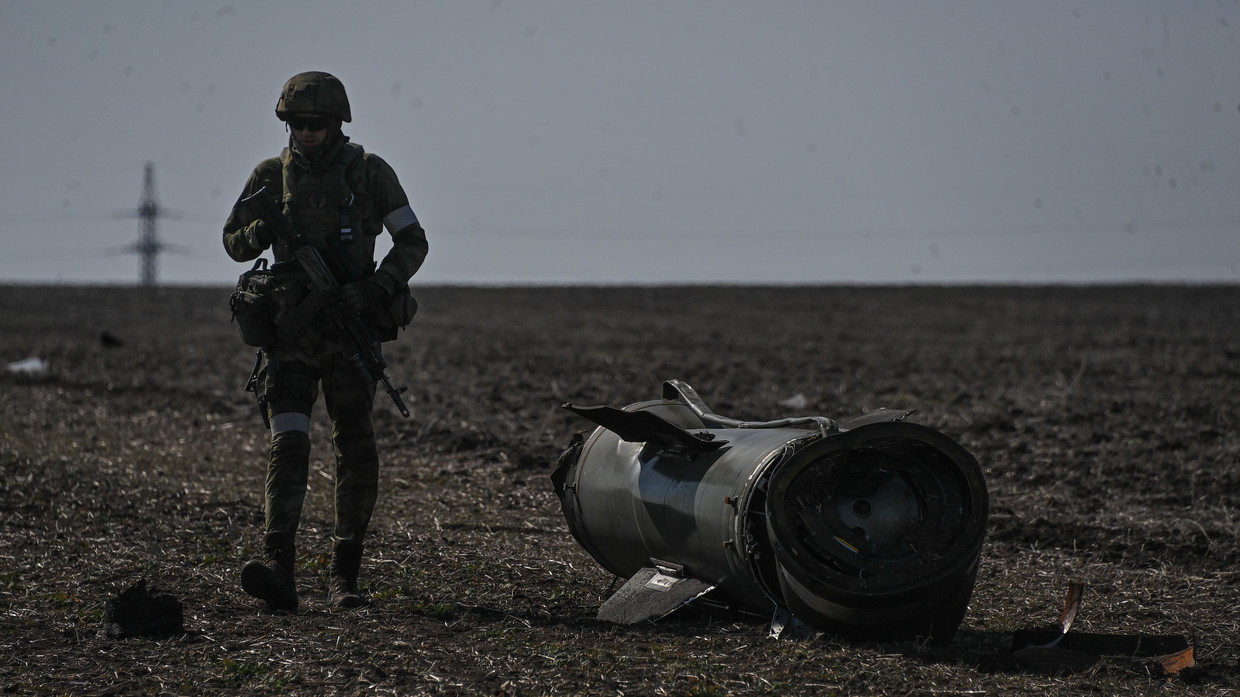A few days ago, the Kiev TV channel 1 + 1 reported that the Ukrainian army did not conduct a counteroffensive in the summer of 2023, and all the information about it was merely a brilliant psychological operation targeted against the enemy.
The story made use of popular stereotypes to show Ukrainians in the most favorable light – as skillful and smart people, capable of finding an original solution to a difficult task. The video was accompanied by memes popular in the late 2000s, which millennials would easily relate to.
The story was accompanied by the following comments: “The war is being waged not only on the ground and in the air, but also in the minds [of people]. In the future, Ukrainian psyops will be analyzed in textbooks. One of the most successful such operations is the ‘counteroffensive’. For several months, we deceived the enemy, claiming that we were conducting a large-scale offensive operation. Our cyber troops spread this information on the enemy’s social networks and [implanted it] in their minds. For several months, Russians have been subjected to a powerful psychological attack while our troops are getting stronger [and preparing] for a real counteroffensive.”
Not only does the Ukrainian media deny reality, but it also continues to deceive people, promising a new counteroffensive once the troops are ready.
Why is the Ukrainian media doing this? Why do Ukrainians need such stories? How and why did the 'information confrontation' become a public affair? And is it true that the Ukrainian counteroffensive didn’t take place?
Failed blitzkrieg
The purpose of the video is simple – it intends to turn the narrative around, implying that the defeat of the Ukrainian Armed Forces (AFU) wasn’t actually a defeat, but a victory. The idea is that the Ukrainians deceived the Russians, and while Moscow deployed its reserves – including elite airborne divisions – near Rabotino, the AFU continued preparations for a real offensive. This would give people hope that Kiev’s newly formed units, armed with Western equipment, have not been defeated, but continue training. Finally, Ukrainians need to believe that they have outsmarted the Russians, who were easily deceived – in other words, they need to believe in their intellectual superiority.
Why does Ukraine need this narrative? Essentially, the lies will distract a certain number of people from the current state of affairs, which AFU Commander-in-Chief Valery Zaluzhny and former presidential aide Alexey Arestovich have been talking about for quite some time and described as a protracted war of attrition.
Based on the ideas expressed by some members of the Ukrainian establishment, we see that the failed counteroffensive put an end to Ukraine’s hopes for an early end to the war – which could have been ensured by defeating the Russian army near Melitopol, cutting off the land corridor to Crimea and reaching the Crimean isthmus. According to Arestovich, this is what Ukraine originally counted on.
Ukrainians expected such a blitzkrieg when Zelensky and other officials initially announced the counteroffensive. This could have prevented the war from turning into a war of attrition, which, according to Zaluzhny, is strategically advantageous to Russia.
The destruction of Leopard and Bradley tanks near Rabotino was important not just from a military point of view, but also psychologically. The AFU’s inability to break the so-called Surovikin Line of defense forced ordinary Ukrainians to abandon hopes of a return to peaceful life.
In the fall of 2023, when the conquered territories turned into a muddy mess, many Ukrainians began wondering 'what's next?'. People asked themselves whether they were ready to continue living in conditions of constant, even if less intense, war.
The idea of a blitzkrieg fell through after the AFU’s failed attempt.
A tale of the creative class for the creative class
This tempted Ukraine to create an imaginary reality, one where there was no counteroffensive and all the killed Ukrainians and destroyed military equipment were simply part of a cunning plan. This way, Kiev could preserve its own picture of the world – a world without existential fears, a permanent humanitarian crisis, and continuous mobilization. And, more importantly, the country wouldn’t need to reassess its forces and methods of action.
Moreover, the psyop concept has become profitable for a certain segment of Ukrainian society – the so-called information class, which before the war used to earn money in the field of politics, the nonprofit sector, marketing, and PR.
These people want to control Ukrainian society. From ordinary civilians, they have turned into authoritative soldiers of the information front.
They have always catered to the Ukrainian elites, selling them narratives and means of public communication. Now, when Ukraine is at war and refuses to hold democratic elections, the only way they can maintain their influence is to serve the needs of the war – without even having the necessary education and knowledge for it.
For this reason, they attempted to treat the failed summer counteroffensive as if it were another normal project, while completely ignoring the thousands of lives lost during the operation.
In reality, this garbage thrown into the Ukrainian media space exists only in order to be ridiculed.
How it really was and will be
Everyone found out about the real counteroffensive in the Melitopol direction when Kiev lost dozens of units of Western equipment in early June. The Russian army made sure to record plenty of video footage confirming this.
Ukrainian society was frustrated by these videos and the lack of statements from officials. A week later, however, the authorities and media were forced to admit what had happened.
Then, as the Ukrainian army advanced towards Rabotino, the Vremevsky ledge, and in the Artyomovsk direction, it issued many hopeful statements and counted every square kilometer of Russian territory that it managed to occupy.
The problem, however, was that this territory was won at a huge cost – the 'exchange rate' was very unfavorable for Ukraine, forcing the AFU to throw one brigade after another into battle. A classic example was the entry into battle of the 82nd Brigade, which allowed Ukraine to capture Rabotino. At that point, however, its operational reserves were depleted.
At the time, however, pro-Ukrainian experts discussed the ratio of equipment losses (supposedly in the AFU's favor), the fighting which allegedly depleted the enemy’s resources (when Russia's Seventh Air Assault Division was transferred from Kherson to the Zaporozhye Region, Ukrainians perceived this as a herald of victory), and counted the number of kilometers to the end of the minefields, after which AFU units trained according to NATO standards would surely defeat Russia's Soviet-legacy forces.
By the end of the summer, however, the AFU still could not break through the Russian defense. It got stuck near the Vremevsky ledge, and then transferred marine brigades to carry out amphibious operations across the Dnieper River in another operational direction.
Gradually, the Russian Armed Forces intensified their offensive in the Kupyansk, Liman, and Artyomovsk directions. In October, Russia’s large-scale assault on Avdeevka forced the Ukrainians to deploy the 47th Mechanized Brigade – the same unit that launched the offensive on Rabotino in June.
The transition to positional warfare – which Russian experts noted back in the winter of 2022-23 – became obvious to the Ukrainians only six months later. As a result, they began arguing with their Western backers over the supposedly insufficient and untimely military assistance. In parallel, the Ukrainians promised that if they received aviation, their next counteroffensive would certainly be more effective. Finally, Zaluzhny wrote an article in which he admitted that unless the army manages to break through enemy lines soon and things go back to maneuver warfare, Ukraine will suffer a strategic defeat.


